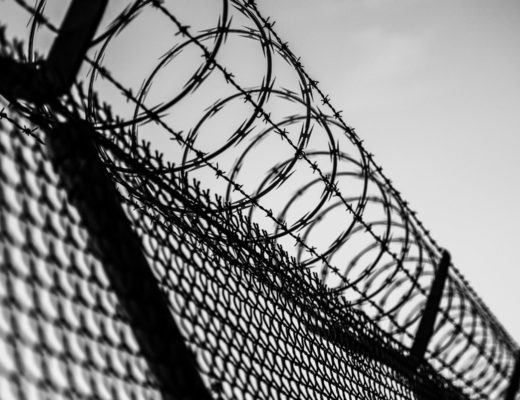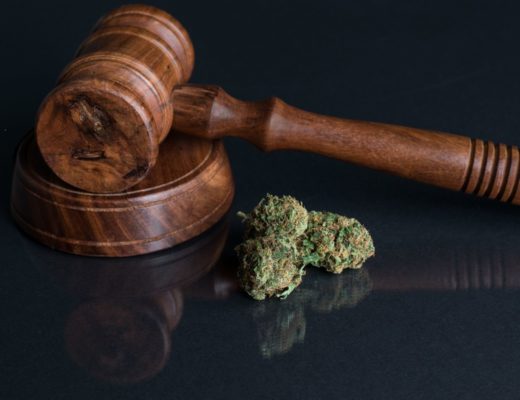Today we’re going to discuss cannabis as a human right. While that sounds a bit radical, it actually makes a lot more sense once you dig into it a little bit.
For starters, we need to understand what a human right actually is. We tend to hear the term human rights get thrown around a lot, but what does it mean exactly?
By definition, human rights are rights that should be inherent to all human beings on the planet. Those rights include the right to life, liberty, freedom from slavery and torture, freedom of opinion, and much more.
This might sound familiar to you if you remember American history class. The United States was founded on the principle that,
“All men are created equal and are endowed by their Creator with certain unalienable rights.”
However, as history would tell, that wasn’t true for people of color or women. Still, over the subsequent centuries, the idea of human rights would slowly expand to include more rights for more people.
One of the most important human rights is the right to health.
In 1948, the UN established one of the most important international treaties regarding human rights. It was called the Universal Declaration of Human Rights, and it included Article 25, which states:
“Everyone has the right to a standard of living adequate for the health and well-being of himself and of his family, including food, clothing, housing and medical care and necessary social services.”
Another international UN treaty was passed in 1966 called the International Covenant on Economic, Social, and Cultural Rights. In it, Article 12 states that,
“…[countries] recognize the right of everyone to the enjoyment of the highest attainable standard of physical and mental health.”
A few more human rights treaties are passed over the following decades, but the important thing to remember is—health is a crucial human right. That means that governments are legally obligated to allow citizens to obtain good health.
The problem is that these human rights treaties are radically different from reality, of course. All we need to do is take a look at cannabis prohibition to understand why.
Prior to Cannabis Prohibition
Before the cannabis prohibition, cannabis was used as a medicine. However, thanks to xenophobia and anti-cannabis propaganda, cannabis was outlawed in the United States in the 1930s.
Since then, the US and many other countries worldwide have outlawed cannabis which has caused problems for cannabis reform until the present day. Cannabis prohibition was built upon misinformation and fear rather than on evidence and science.
Now let’s take a look at what the evidence and science say about cannabis’ medical properties. In the 1970s, a physician named Tod H. Mikuriya revived their interest in medical cannabis research.
In the 1990s, a breakthrough took place when researchers discovered the endocannabinoid system (ECS). The discovery of the ECS was significant and opened up a lot of understanding of human physiology.
Ultimately, scientists would discover that the ECS is vital for maintaining homeostasis. That means if you get injured or have an illness, the ECS kicks in to help your body return to normal.
After the discovery of the ECS, interest in medical cannabis research skyrocketed. In the last few decades, mountains of research papers were published, showing how cannabis could help relieve pain, reduce anxiety, protect neurons, reduce seizures, and much more.
Basically, scientists proved what many people already knew about cannabis—that it could be a powerful medicine used to aid a number of different illnesses.
Now let’s pause for a second to tie everything together. We now understand that everybody should have a right to health, which is a human right.
On the other hand, there’s cannabis which can help people in many different ways. However, the government has outlawed cannabis—restricting people’s right to health by prohibiting cannabis.
Court Examples of Cannabis Prohibition
A Supreme Court case in 2005 known as Gonzales v. Raich made clear that the federal government would uphold cannabis prohibition, even if it were legal in the state.
A Californian woman named Angel Raich had her home raided by the DEA in 2002, where they destroyed her six cannabis plants. She grew and used cannabis to help treat chronic pain and muscle spasms in her spine from a car accident many years prior.
Raich’s doctor testified on her behalf and said that she had tried dozens of prescription medications, none of which helped her condition. However, the supreme court upheld the decision to allow the persecution of medical marijuana patients.
Perhaps you heard about Charlotte Figi, who was a child with a rare disease called Dravet Syndrome. The disease caused her to have up to 300 seizures a week, and no medicines were helping.
Her parents were at a total loss but convinced Charlotte’s physicians to give her medical marijuana. After her treatment with medical cannabis started, Charlotte was having 2-3 seizures per month.
On medical cannabis’ effects, her parents said:
“It’s helped everything. She has over 99% seizure control. She doesn’t use her feeding tube anymore…It’s been a totally life-changing event, totally life-changing medicine.”
Charlotte has become an influential figure in legalizing medical cannabis. However, it’s sad to see that medical cannabis was her absolutely last option and that her parents had to fight for her right to use it.
Think about how much suffering Charlotte could have avoided had medical cannabis been readily available. The government’s cannabis prohibition had violated Charlotte’s right to health.
These are only two examples of countless stories among children and adults who have benefited from cannabis use. However, what’s really shocking is when we think about all the people who could be helped.
If you think about it—how many people could benefit from medical cannabis use right now? What about in the past decades?
An untold number of people could have had their suffering eased by having unrestricted access to cannabis. Each year that cannabis prohibition continues is another year that our human rights are being violated.
Luckily, it seems that after so many decades of misinformation, the situation in recent years is improving significantly. It’s been an uphill fight, but hopefully, we’re at the cusp of full cannabis legalization.





No Comments